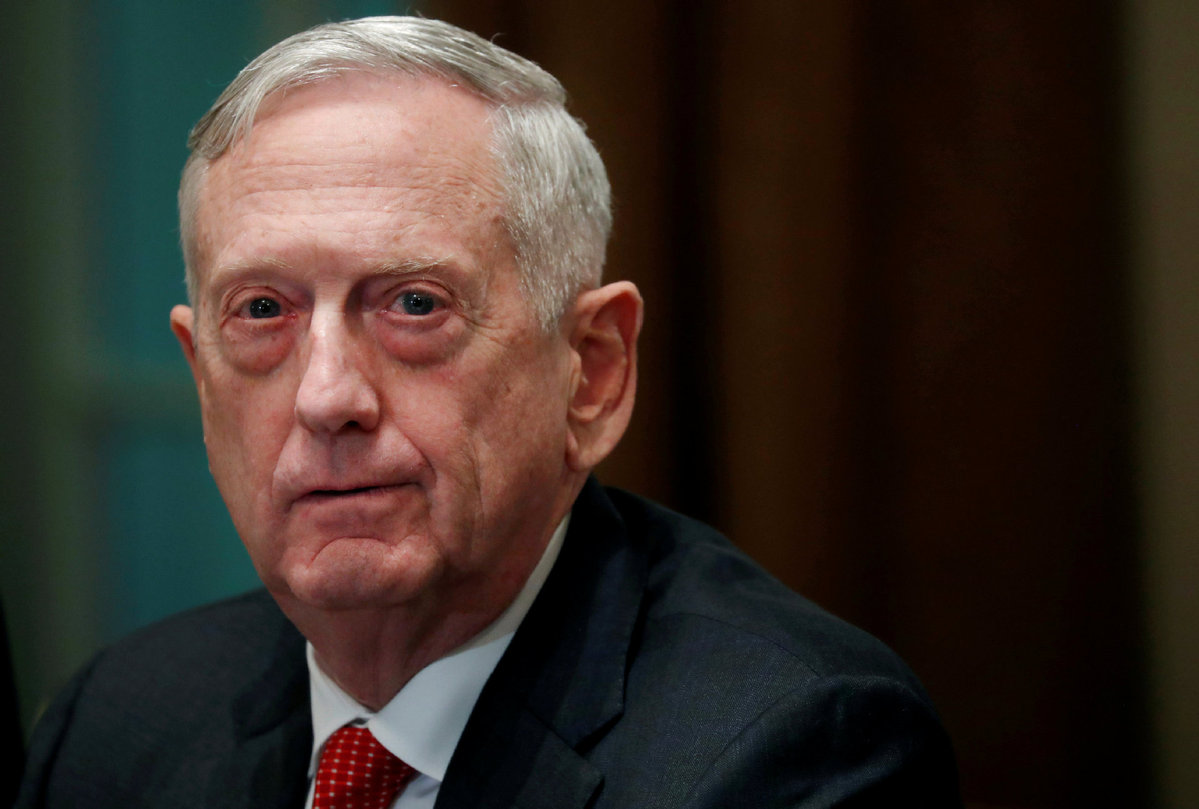Mattis out sooner than he expected


US secretary of defense had planned to stay on until the end of February
United States President Donald Trump said on Sunday he was replacing Secretary of Defense James Mattis earlier than had been expected. The abrupt call came just days after Mattis announced his resignation.
Such a sudden switch reflected the White House's displeasure with Mattis' resignation letter, and might cause anxiety among US allies, said a Chinese expert.
Trump said Deputy Defense Secretary Patrick Shanahan would take over on an acting basis from Jan 1. Shanahan worked for more than three decades at Boeing Co and was a senior vice president before he became Pentagon deputy in July 2017.
On Thursday, Mattis abruptly said he was quitting, effective on Feb 28, after falling out with Trump over his foreign policy, including decisions to withdraw all troops from Syria and begin a drawdown in Afghanistan.
In announcing his resignation, Mattis distributed a candid resignation letter addressed to Trump that laid bare the growing divide between them, and implicitly criticized Trump for failing to value America's closest allies, who fought alongside the US in both conflicts. Mattis said that Trump deserved to have a defense secretary more aligned with his views.
The move also signals an acrimonious end to a tense relationship between Trump and Mattis that had eroded in recent months, according to the Associated Press.
Mattis offered his resignation a day after Trump ordered the withdrawal of the 2,000 or so US troops from Syria and declared victory over the Islamic State militant group, a move that Mattis reportedly disagreed with strongly.
Zuo Xiying, a professor at Renmin University of China, said the confrontations between Mattis and Trump is the embodiment of the dissatisfaction the two have had toward each other.
He said the timing of Mattis' resignation reflects the differences of opinion on the withdrawals from Syria and Afghanistan.
"Trump is unwilling to bear the huge war costs, thus he tries to withdraw from Syria and Afghanistan," he said. "While, Mattis believes that US military operations in Syria and Afghanistan are aimed at fighting terrorism, which is of great significance to US national security."
The scope of Mattis' divergence with Trump went far beyond just the US military missions in Syria and Afghanistan.
Mattis is a defender of the US alliance with the North Atlantic Treaty Organization. Trump, on the other hand, has bashed NATO for being "obsolete" and scolded member countries for failing to contribute sufficient funds.
The two also clashed on issues such as banning transgender recruits from the military, canceling the joint US-Republic of Korea military exercises, pulling the United States out of the Iran nuclear deal, and the deployment of troops to the US-Mexico border.
Zuo said Mattis' leaving may increase the friction between Washington and its allies as he has been acting as a "bumper" for the two sides.
"Mattis has both theoretical literacy and practical experience in national security affairs. He is also quite cautious in realistic policy," he said. "Mattis believes that allies are an important cornerstone of US national security."
As Mattis played an important role in embodying Trump's strategic concept and buffering the president's strategic impulse, Zuo said, his departure would make it easier for Trump to further "rip off" his allies.
Xinhua and Reuters contributed to this story.
































